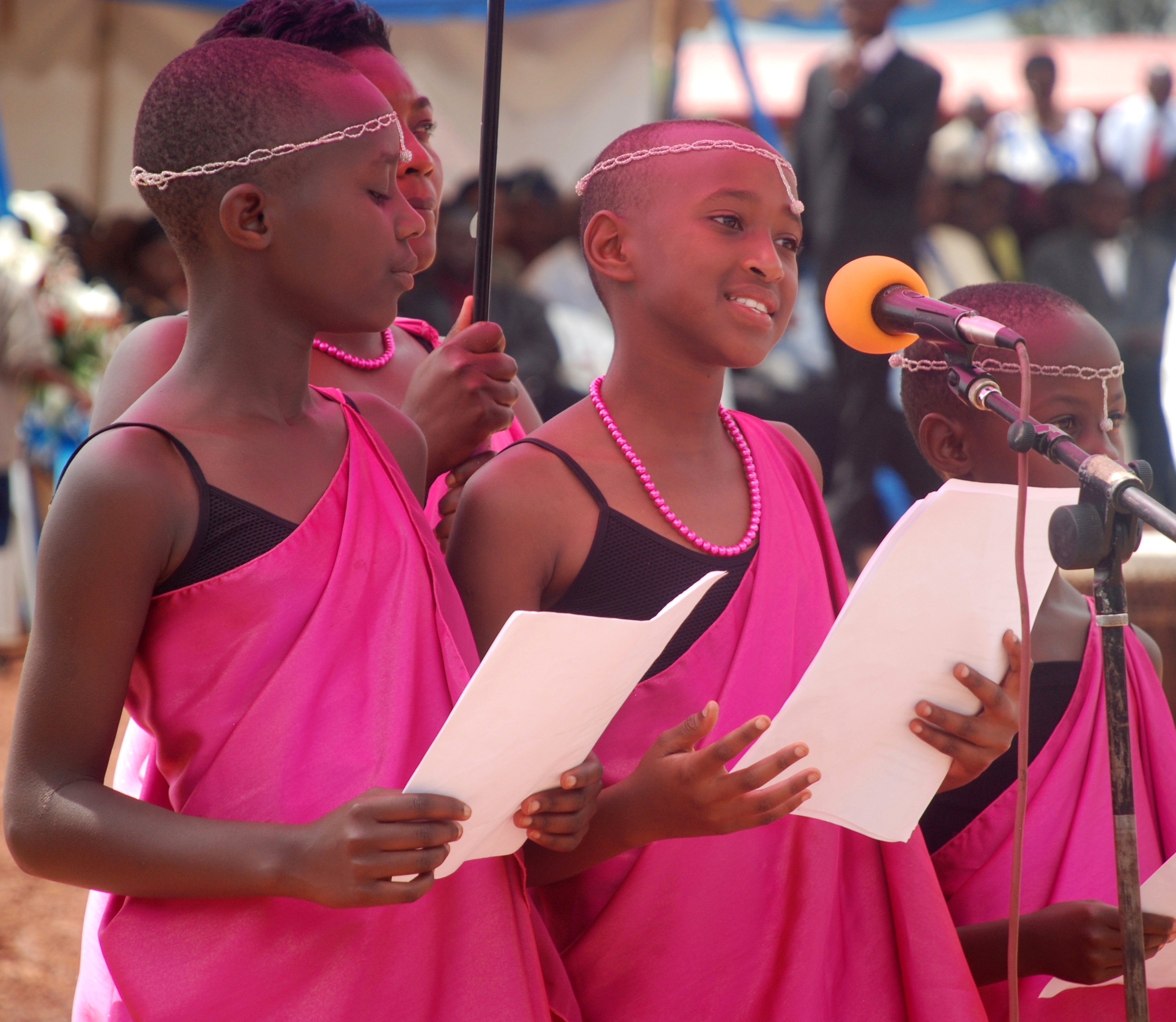A need to make farming more productive

Children reciting a poem (photo: M. Peru)
Over 90 per cent of the population is involved in agriculture. However, the harsh climate conditions and reliance on traditional farming methods and products means that people are vulnerable. Measures, such as tree planting and terracing, have been taken to improve the environmental conditions for farming. In addition, the planting of drought and disease resistant species of crops has been encouraged and the local population has been trained in modern agricultural methods. It is hoped that this will improve the production, thus generating more income. Food supply throughout the year is also a problem, with recent activities seeking to address it through better food processing and storage facilities. In many cases the lack of food, combined with the limited supply of wood for cooking leads to nutrition problems, which sometimes result in malnutrition.
Children in this rural town are particularly at risk. There is a high maternal and infant mortality rate as adequate health-care is not easily accessible. It is calculated that 3.8 per cent of the population has HIV/AIDS – this high prevalence rate means that many children are left without parental care and that child-headed households are common.
Children are often forced to work to provide for their families – for example, the region's illegal mining of cassiterite often employs children to work in very dangerous conditions. Many children end up living on the streets, digging in rubbish pits for food. They have to beg, steal or do menial jobs in order to survive. In a region, where there is limited access to education, children commonly drop out of school.
An urgent need to provide support to families
The social and economic situation of the families and children in Kayonza makes the work of SOS Children's Villages in the area particularly important. There has been an increase in the number of people living in the area, and a large number of poor and vulnerable groups cannot be supported by governmental resources alone. We are working alongside other organisations to ensure that families can stay together so that children can grow up in a loving environment. In addition, the provision of early education through the kindergarten and the primary school hopes to give the children in the area a brighter future.
What we do in Kayonza
Young children at the SOS Children’s Villages’ kindergarten (photo: SOS archives)
Strengthen families: The family strengthening programme reaches families who are at risk of abandoning their children. Working with local authorities, we ensure that children have access to food, and we give children and families educational and health support. We also advise on parenting skills and income generation. Furthermore, we strengthen communities so that vulnerable members have someone to turn to in times of need. An additional programme counsels families who are affected by HIV/AIDS.
Education: The children can attend the SOS Children’s Villages’ Kindergarten, which has capacity to care for up to 75 children. The provision of day-care is particularly valued by those parents who attend training or go to work. Up to 210 children, both from SOS families and from local families can attend the SOS Hermann Gmeiner School, which educates children at primary level. The canteen provides the children with food during the school day.
Health care: The SOS Medical Centre provides a variety of health treatments and advice on the prevention of illnesses. In 2017 we started working to improve the mental health of children and young people. In addition to training mental health and care professionals, we provide counselling.
Care in SOS families: We provide some direct care to children who are not able to live with their families. In some cases this is only until a more permanent home can be found for them.
Support for young people: We support young people until they are able to live independently. We provide them with training and liaise with local businesses so that they can gain work experience.